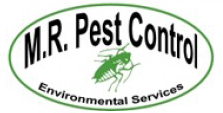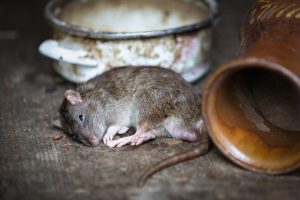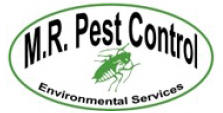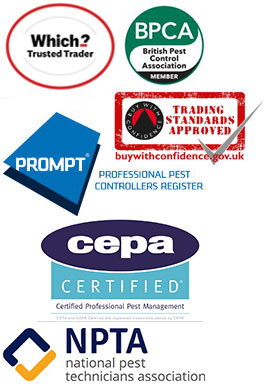The Importance of Professional Pest Control
Professional pest control is crucial in maintaining a healthy environment in homes and businesses. Trained exterminators possess the expertise to accurately identify pests and determine the level of infestation. Without precise identification, addressing infestations becomes challenging. Experts use this knowledge to apply the most effective treatment methods tailored to the pest type and severity of the problem.
Health protection is a key advantage of hiring professionals. Certain pests pose significant health risks to humans through bites, stings, or disease transmission. Engaging qualified pest controllers mitigates these threats by effectively eliminating pests at their source. This approach not only eradicates existing problems but also reduces the likelihood of future infestations.
Many people attempt DIY pest control, which often falls short in efficacy and safety. Professionals ensure that pesticides are applied correctly, minimising exposure to hazardous chemicals. Moreover, the short-term visibility of pests trying to escape treatments can falsely reassure individuals without expert intervention.
Professional oversight extends beyond treatment to comprehensive monitoring and pest-proofing strategies. After initial eradication efforts, ongoing observation helps determine if additional interventions are necessary. Pest control experts provide valuable tips and advice for prevention, aiding clients in keeping environments pest-free long after their initial visit.
Ultimately, professional pest control services offer a cost-effective solution to safeguarding health, property, and peace of mind. Trusting in the skills of certified exterminators ensures efficient and sustainable pest management.
Choosing the Right Exterminator
Selecting the right exterminator is crucial for effectively dealing with pest issues. We need to consider several factors to make an informed decision.
Evaluating Qualifications and Certifications
Qualifications and certifications are essential when choosing an exterminator. Professionals in this field should hold relevant licences and adhere to industry standards. We should verify their credentials with local authorities to ensure compliance with regulations. Certified exterminators possess the necessary expertise to handle various pests safely.
Reading Reviews and Seeking Recommendations
Customer reviews and recommendations offer valuable insights into an exterminator’s reliability and effectiveness. Online platforms provide numerous reviews from previous clients, highlighting both successes and areas of concern. By seeking recommendations from friends or family, we can gauge the satisfaction level and service quality of different providers.
Comparing Services and Costs
Comparing services and costs helps identify the best value for our investment. Different exterminators may offer diverse treatment plans, tailored to the specific infestation at hand. We should request detailed quotes that outline the services included within the price range of £150 to £200 per day. By evaluating these factors, we can select an exterminator who balances expertise, cost, and comprehensive service.
Types of Pest Control Methods
Exterminators employ various pest control methods, tailored to the specific needs of each infestation. Each technique has its advantages and suitable applications.
Chemical Treatments
Chemical treatments serve as a common method in pest control. These involve using pesticides and insecticides designed to target specific pests. Our approach ensures that chemicals are applied accurately and safely. For instance, insecticides effectively eliminate insects like fleas and bed bugs. We ensure proper application to minimise risks to humans and pets.
Physical Control Techniques
Physical control techniques provide a non-chemical way to deal with pests. These include using traps and barriers to capture or deter pests. For instance, traditional mouse traps remain effective in controlling rodent populations. We also patch up entry points, such as holes in roofs, to prevent access by squirrels and birds. These methods focus on physically removing or blocking pests from entering spaces.
Biological Solutions
Biological solutions offer an environmentally friendly approach. This method involves introducing natural predators or repellents. For instance, using cats to manage rat populations or planting specific plants to deter insects. These natural interventions adjust the environment to maintain pest-free spaces. By altering the ecosystem, biological methods keep infestations in check without relying on chemicals.
Residential vs Commercial Pest Control Services
Different environments demand unique pest control approaches. Homes and businesses have distinct challenges requiring tailored strategies for effective pest management.
Tailored Solutions for Homes
Homes typically face pests like spiders, cockroaches, and ants. Our residential pest control services focus on these common intruders, ensuring safe family environments. We recommend using eco-friendly treatments to minimise risks while maintaining effective pest eradication. Routine inspections help identify potential infestations early, preventing larger issues and ensuring homes remain pest-free.
Specific Needs of Businesses
Businesses encounter different pest-related challenges. Pests like rodents and termites often pose a threat to property and reputation. Our commercial services address these issues using advanced methods and scheduled maintenance to ensure seamless operations. We monitor waste management and delivery inspections to prevent infestations. Compliance with health and safety regulations is crucial for businesses; our professional services ensure adherence, safeguarding both personnel and clients.
Common Pests and Extermination Strategies
Identifying common pests is essential for effective extermination. Exterminators employ targeted strategies to tackle rodents, insects, and birds in homes and businesses.
Rodent Control
Rodents, particularly mice and rats, pose significant challenges. We use humane traps and physical barriers to catch and block their entry points. Poisonous bait effectively eliminates rodents but requires cautious handling to avoid risks to pets and children. Regular inspections and proofing measures ensure these unwelcome guests don’t return.
Insect Eradication
Insect infestations, including cockroaches, bed bugs, and ants, are common in urban areas. Chemical treatments using pesticides are effective for severe cases but must be applied by professionals to ensure safety. Biological pest control, such as introducing natural predators, offers an eco-friendly alternative. Regular monitoring and maintenance are vital for long-term insect control.
Bird Management
Birds like pigeons can create persistent problems. Physical methods, such as installing spikes and nets, prevent nesting and roosting. For larger spaces, sonic devices that emit sounds to deter birds are an option. Non-lethal control methods maintain human safety and comply with regulations while keeping birds away from properties.
DIY Pest Control vs Professional Extermination
DIY pest control involves using readily available products designed for small-scale infestations. These solutions are suitable for minor issues in homes or gardens but often lack the effectiveness of professional treatments. We can find products like sprays, powders, and traps, often targeting specific pests such as ants, cockroaches, and mice.
In contrast, professional extermination offers comprehensive pest management. Experienced pest control specialists assess the infestation, identify the pest, and choose the most effective treatment. Chemicals, physical barriers, or biological methods might be used depending on the situation. Professionals ensure correct and safe application, adhering to strict regulations to protect human health and the environment.
Professional services also provide additional benefits like ongoing monitoring and preventive advice to help avoid future infestations. Although hiring a professional entails an average cost of £150 to £200 per day, the investment ensures thorough and enduring pest management, mitigating health risks associated with ineffective DIY methods.
What to Expect from a Pest Control Service
Professional Inspection: A pest control service first involves a thorough inspection of the property. Our experts identify the type of pests present and assess the scale of the infestation. Accurate identification is crucial for devising an effective treatment strategy.
Tailored Treatment: After inspection, we develop a customised treatment plan addressing specific pest issues. This could involve chemical treatments, physical barriers, or eco-friendly solutions, depending on the nature and severity of the infestation.
Follow-Up Monitoring: Post-treatment, our team monitors the situation to ensure the effectiveness of the treatment. Regular check-ups help determine if additional measures are needed to maintain pest-free conditions.
Preventative Advice: Beyond eradication, we offer advice on pest-proofing your home or business. Suggestions may include sealing entry points, reducing attractants, and maintaining cleanliness to prevent future infestations.
Health and Safety: Our services ensure minimal disruption while prioritising the safety of occupants. You might need to vacate the treated area temporarily, following safety guidelines provided by our technicians.
Key Takeaways
- Hiring professional exterminators ensures efficient and safe pest removal, enhancing peace of mind while protecting health and property.
- Certified pest control services offer expertise in identifying pests and applying tailored treatment methods to effectively manage infestations.
- Professional exterminators provide comprehensive services, including ongoing monitoring and preventive strategies to minimise future infestations.
- Choosing a qualified exterminator involves assessing their credentials, reading reviews, and comparing services and costs to ensure value for money.
- Exterminators utilise diverse pest control methods, such as chemical, physical, and biological strategies, adapted to specific pest needs and environments.
- Although DIY pest control can address minor issues, professional extermination guarantees comprehensive and lasting results, justified by its average cost.
Conclusion
Choosing professional pest control services ensures we effectively tackle infestations while safeguarding our health and property. By relying on trained experts, we benefit from precise pest identification and tailored treatment plans that address specific needs. Our investment in professional services not only mitigates health risks but also provides long-term peace of mind. Whether dealing with residential or commercial environments, professional exterminators offer the expertise and strategies necessary to maintain a pest-free space. With their commitment to safety and adherence to regulations, we can trust these services to deliver thorough and reliable pest management solutions.
Frequently Asked Questions
How much does pest control cost?
Pest control services typically range from £150 to £200 per day. This cost can fluctuate based on factors such as the severity of the infestation, the type of pests involved, and the specific services required. Investing in professional pest control ensures comprehensive and effective treatment, potentially saving money in the long run by preventing recurring issues.
Should I hire a professional exterminator or try DIY methods?
While DIY methods might work for minor issues, professional exterminators are recommended for serious infestations. They provide precise identification, thorough treatment, and preventative measures that are often more effective and safer, ensuring long-term pest control and peace of mind.
What should I look for when choosing a pest control service?
When selecting a pest control service, check for qualifications, certifications, and compliance with industry standards. Verify their credentials with local authorities, read customer reviews, and ask for recommendations. Compare services and costs by requesting detailed quotes to ensure the best value.
What pest control methods do professionals use?
Professionals utilise various methods tailored to each infestation, including chemical treatments with pesticides, physical controls like traps, and biological solutions involving natural predators. They ensure these methods are applied safely to minimise risks to humans and pets.
What are the differences between residential and commercial pest control services?
Residential pest control usually addresses common household pests with eco-friendly treatments. Commercial services are designed for business environments, tackling challenges like rodents and termites while ensuring compliance with health and safety regulations.
Why is professional pest control considered a good investment?
Professional pest control is a worthwhile investment because it ensures effective and lasting pest management. By eliminating pests at their source and employing safe, efficient methods, it mitigates health risks and prevents future infestations, safeguarding both health and property.





